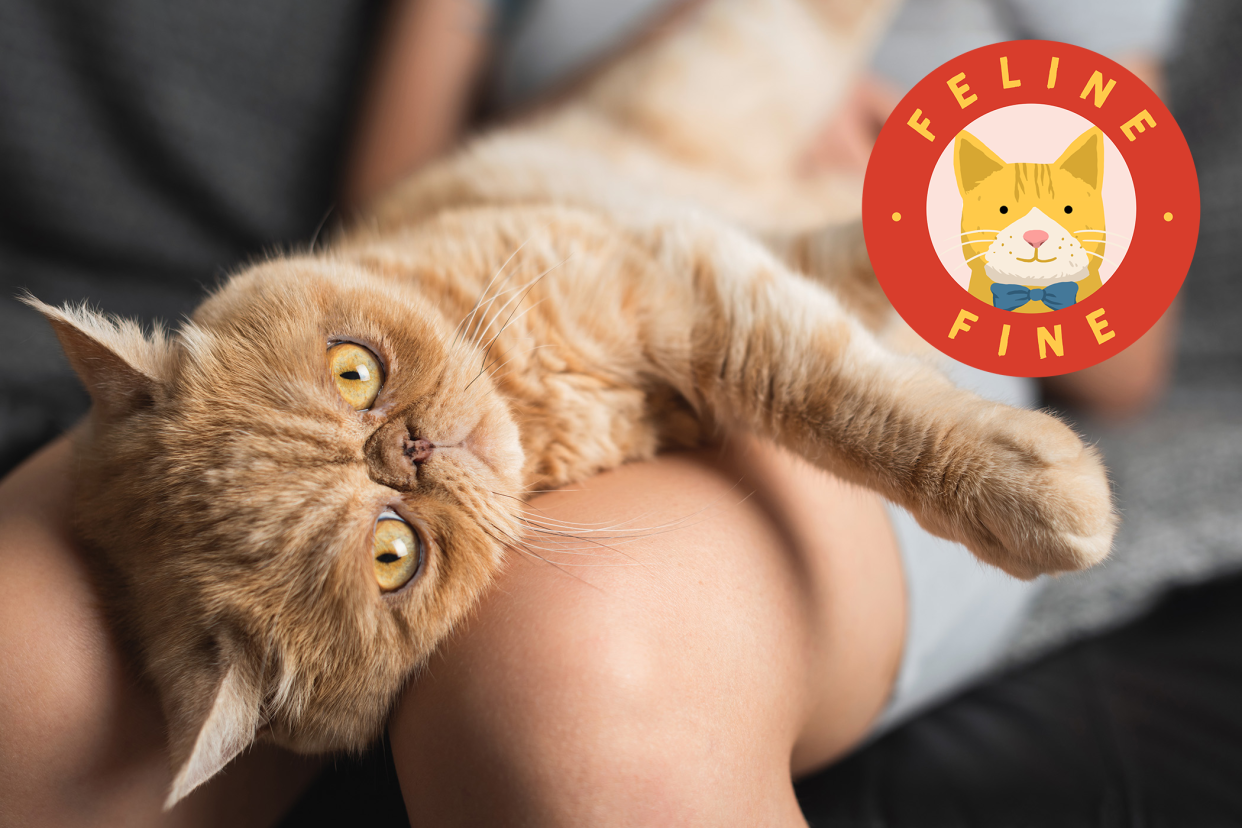Does Your Cat's Breathing Sound Funny? It Could Be Pneumonia

Arx0nt / Getty
Pneumonia in cats is more serious than a simple case of kitty sniffles. With pneumonia, your cat's lungs become irritated and swollen, which makes it harder to breathe. Catching it early on makes it easier to treat. Read on to learn more about the rare, but potentially fatal, illness and how to spot the signs so you can act swiftly.
Causes of Pneumonia in Cats
"Pneumonia develops due to various causes," says Alex Crow, MRCVS, veterinary surgeon at Buttercross Veterinary Center in the United Kingdom and Senior Tailwaggers contributor. "But ultimately, the result is the same: It inflames the lungs and leads to poor breathing and lower oxygen levels." Here are the various types of pneumonia that occur in cats:
Bacterial or Viral Pneumonia
Infectious pneumonia is the most common type in cats. It happens when your kitty catches a cold, or feline upper respiratory infection, from breathing in bacteria or viruses. If your cat's immune system is having a tough time fighting off the germs, the cold can turn into pneumonia, report the experts at MSPCA-Angell West Emergency Services in Waltham, Mass.
Fungal Pneumonia
According to the Merck Veterinary Manual, fungal pneumonia typically occurs when a cat inhales fungal spores found in soil. The fungus infects the lungs and causes inflammation.
Aspiration Pneumonia
Have you ever had a terrible coughing fit after accidentally breathing in liquid or bits of food? Cats sometimes inhale foreign substances, too. Things like water, their own vomit, or liquid medications are often the culprit, irritating lungs and causing aspiration pneumonia.
Parasitic Pneumonia
Parasites such as lungworms or flukes can invade the lungs and cause an inflammatory reaction. Cats typically get these parasites by consuming prey or drinking tainted water. Parasitic pneumonia is more likely in kittens and outdoor cats.
Signs and Symptoms of Pneumonia in Cats
Like pneumonia in dogs, the illness causes a slew of respiratory symptoms in cats. The symptoms are generally the same regardless of which type of pneumonia your cat has, Crow says, and include:
Breathing difficulties
Noisy breathing sounds
Wheezing
Coughing, which may bring up pus or blood
Fatigue
Nasal discharge
Note that cats with infectious pneumonia bring up more pus whereas those affected by fungal or parasitic pneumonia are more likely to cough up greenish-colored discharge.
Is Pneumonia Contagious?
All cases of pneumonia in cats are contagious with the exception of those caused by aspiration (breathing in foreign material). Sickness can pass between cats that live together. It's also possible for a cat to pass pneumonia on to a dog in the same household, depending on what type of germ is causing the infection, says Crow. Cats and dogs with weakened immune systems are especially prone to catching pneumonia from another sick pet in the home.
"However, in the vast majority of cases, people are resistant to catching feline respiratory diseases," Crow states. "With the very rare exception of bird flu."
How to Treat Pneumonia in Cats
Cats with pneumonia need veterinary attention. Treatment depends on the type of pneumonia and may include antibiotics or anti-fungal medications to eliminate lung infections. Your veterinarian may also recommend a decongestant medicine to reduce the swelling in your cat's airways so your furry pal can breathe easier.
If the pneumonia is severe, your cat may need emergency care. Treatment for advanced cases of pneumonia involves hospitalization, oxygen therapy, and intravenous fluids.
Home Care for Cats With Pneumonia
Is your kitty recovering from pneumonia at home? You can help your furry pal feel better fast by creating a healing environment. First, make sure your cat has warm, cuddly spots for resting and provide plenty of fresh water. At mealtimes, moisten kibble to increase your cat's fluid intake—you don't want your kitty to become dehydrated. It's also important to eliminate aerosols, scent diffusers, and home fragrances as this can further irritate your cat's respiratory system.
"Because cats with weakened immune systems are more likely to develop pneumonia, the key to preventing it in the future is to keep your cat in good overall health," Crow says. Nutritious food, regular exercise, veterinary check-ups, and keeping your kitty up-to-date on vaccinations all work together to safeguard your pet's health.

